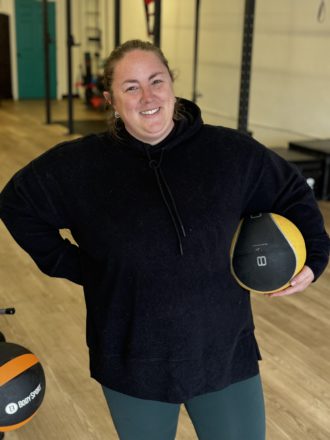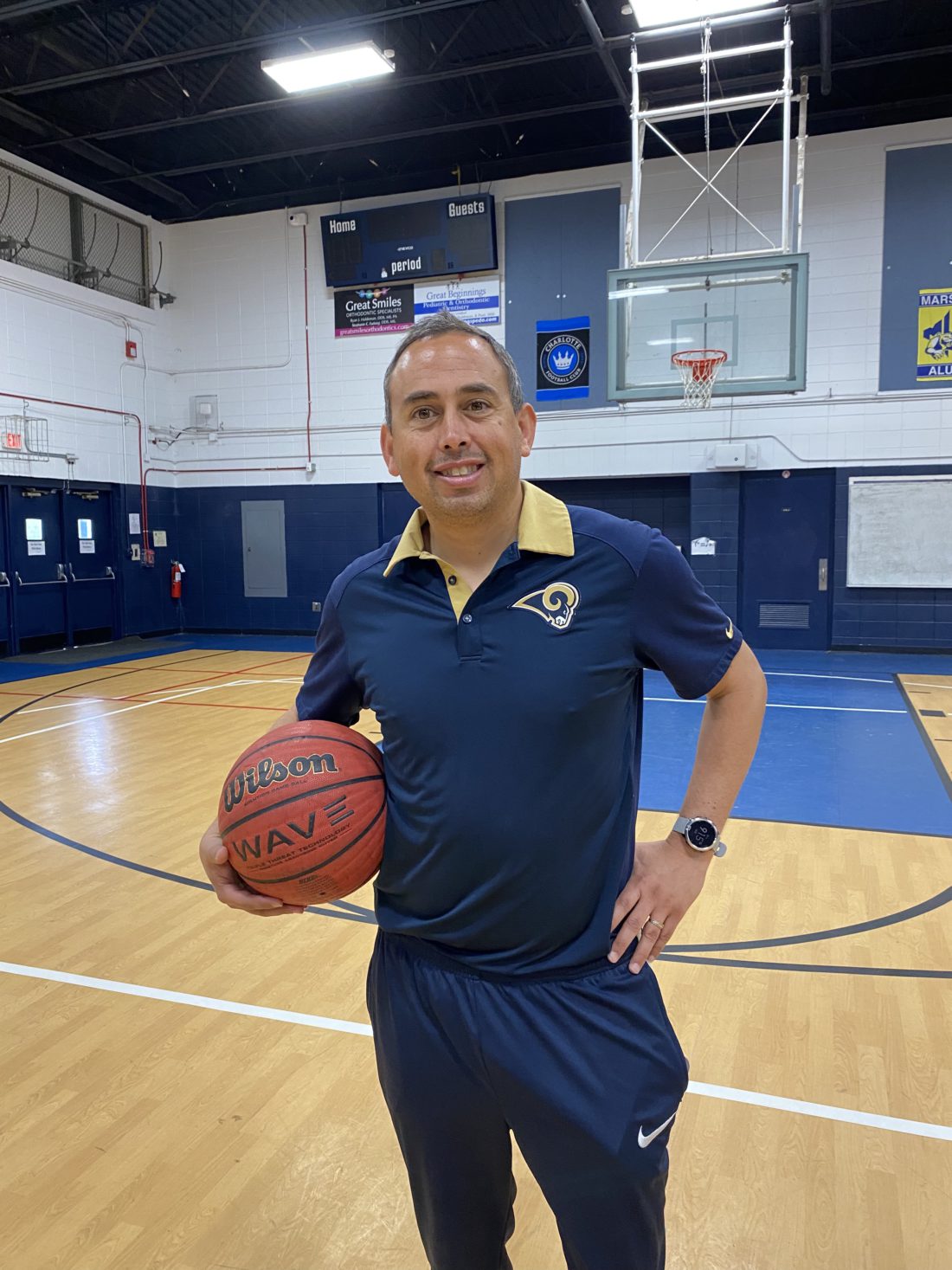There are plenty of reasons why children and young adults may be underactive: cars as the dominant mode of transportation, for example, or the lure of seven streaming services and 400 high-definition channels. But one reason might be a bit surprising: Adolescents may avoid playing youth sports not because of their skill level but because of their body image.
Increased body size can become a deterrent to playing sports as early as 6 years old, according to a 2021 review of studies in the medical journal Cureus. And after 12 years old, gender identification issues — such as stereotypes about some sports being unfeminine and others being unmasculine — can cause adolescents to drop out.
Experts who work with young people in Asheville are all too aware of the impact that body image can have on self-esteem. They spoke with Xpress about how to encourage movement, how to talk about bodies and food, and how to direct compliments.
Kids are listening
How adults talk about their own bodies matters.
Many adults have unintentionally normalized insults or self-deprecation about their own appearances, says Tabitha Pack, clinical director for Asheville Academy for Growth, a therapeutic boarding school in Black Mountain for female-identifying students ages 10-15. Hearing an adult make comments like “My hair is a mess” or “My skin looks awful today,” she says, is “planting seeds of self-doubt for the youth we’re role modeling for.”
But caregivers don’t need to constantly police how they speak, notes Danielle Jacoby, a licensed clinical mental health counselor at Asheville Academy for Growth. “Even if we mess up, we can come back and talk about it,” she explains. “We can say, ‘Remember yesterday when I talked about that other person’s body looking this way? I shouldn’t have said that.’ It’s about having accountability. You don’t avoid it, and you accept that you make mistakes.”
Another way to model self-acceptance for kids is to show that sometimes we just don’t feel good in our bodies, says licensed clinical social worker Betsy Archer, owner and head personal trainer at All Bodies Movement and Wellness. It’s important to recognize that “all the feelings are valid. Everybody has bad body days — everybody.”
Giving great compliments
One way to take focus off bodies and appearance is to give compliments to kids “that have nothing to do with the way that somebody looks,” Archer says, giving examples like “I noticed you being a great friend today.”
Compliments about clothing or style can keep the focus on the subject’s self-expression and creativity “rather than the superficial ‘how it looks,’” Jacoby says.
And when it comes to accomplishments, praise doesn’t always have to be about scoring a goal or winning a game. Paul Buckley, who teaches physical education for kindergarten through fourth grade at Glen Arden Elementary, explains that he cheers “in the past tense.” He compliments what a kid has done correctly rather than putting pressure on how well they perform.
“I say a positive phrase like, ‘I like the way that you pass the ball with the inside of your foot,’” Buckley explains. “The ball may not have gone where they wanted it to go, but they did the technique right.”
How parents talk about food
Caregivers may be coming from a good place when they talk about healthy eating, but that guidance can misfire for kids when the focus is on restriction.
“We see it a lot in Asheville — ‘I’m going to raise my kid with no sugar, we’re going to have no food dyes, everything has to be organic,’” explains Archer.

Overemphasizing what they shouldn’t eat or drink “can really isolate kids,” she continues. “Maybe they’re not able to participate in some of the rituals like birthday parties or gatherings like classroom parties or things where we might eat something that we don’t normally eat.”
Archer thinks framing some foods as “bad” only makes them more appealing when a child inevitably encounters, say, potato chips at a friend’s house. She says there can be room in anyone’s diet for occasional exceptions, including foods that aren’t nutritionally dense. “Sometimes we eat at a celebration, and sometimes celebration foods are different than foods that we would have in our normal, everyday world,” she explains.
Buckley, the physical education teacher, says he discusses nutrition with his students in age-appropriate ways, like describing how food works as fuel for their bodies. And some foods are not so good as fuel.
“If you’re drinking more water than juice or sodas and you’re eating vegetables and fruits, you’re going to feel the benefits of that when you’re exercising,” he explains. Discussing nutrition with kids can be as simple as explaining how protein builds muscular strength and might make it easier to climb the jungle gym.
Archer also recommends teaching kids to heed their own hunger cues, eat when they’re hungry and stop eating when they feel full. The directive “clean your plate” may be as old as parenting itself, “but what it actually ends up doing is teaching kids to not trust their body signals,” she says. Learning the body cues for hunger and satiation is essential for recognizing when our bodies need to be nourished.
Another way to keep the focus on food as nourishment is to make meals and eat together and find connection and enjoyment through food, Pack says.
Encouraging movement
Experts emphasize that making body movement fun can keep kids interested and prevent physical activity from just being about weight loss or punishment.
Archer gives an example of how she spoke with her family about a recent hike. “It was so great to be in nature and to see these beautiful sights,” she says. “[I talked about that] instead of, like, ‘Man, I really worked really hard to burn a lot of calories.’”
Buckley has three children and says he encourages his family to do physical activities together. “I could tell them to go practice soccer or ride a bike, but their favorite thing is if I ride the bike with them,” he says. The family spending time together is one positive. But he’s also modeling that even if he may not be skilled at an activity, it can be fun to do anyway.
Asheville Academy for Growth therapist Zachary Champion points out that unstructured play is totally OK. “Some parents are really nervous about not having a plan,” he says. But he’s had success just bringing students to the park and keeping an eye on them while they figure out for themselves how to play.
“I go out to a field and I don’t give them any parameters on what they can do — I just want them to do something. They end up, like, running around and playing the entire time.”



Before you comment
The comments section is here to provide a platform for civil dialogue on the issues we face together as a local community. Xpress is committed to offering this platform for all voices, but when the tone of the discussion gets nasty or strays off topic, we believe many people choose not to participate. Xpress editors are determined to moderate comments to ensure a constructive interchange is maintained. All comments judged not to be in keeping with the spirit of civil discourse will be removed and repeat violators will be banned. See here for our terms of service. Thank you for being part of this effort to promote respectful discussion.